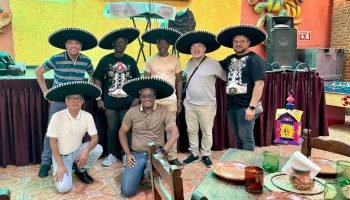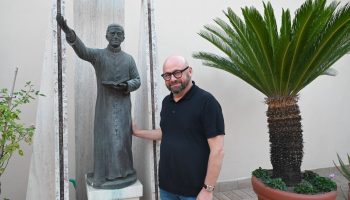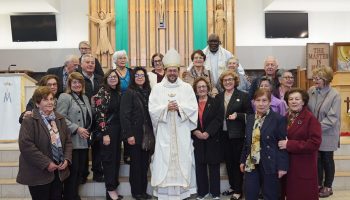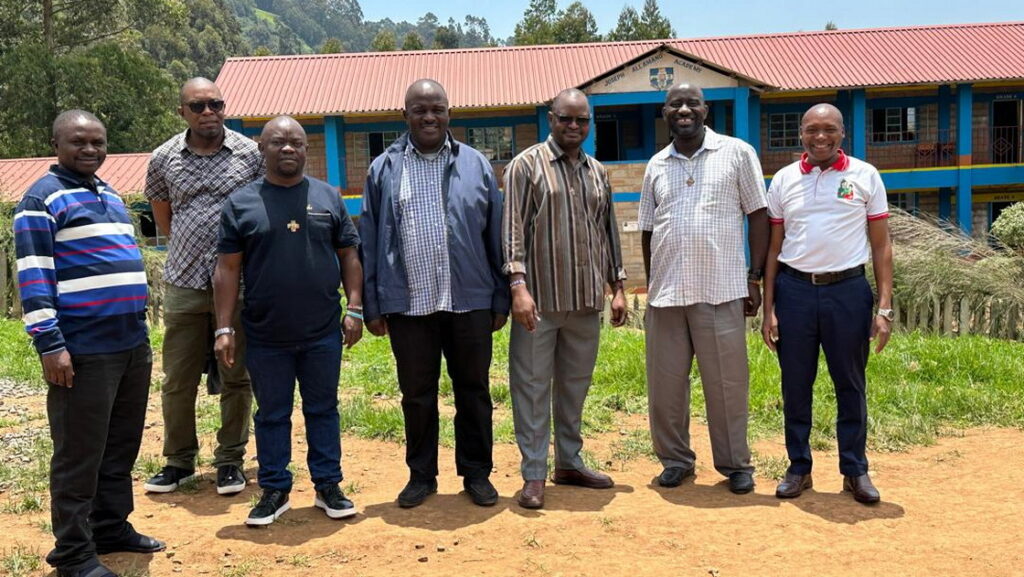
The Bethany House Spirituality Center in Sagana, Kenya, host from September 8 to October 8, 2025, an ongoing formation course for a group of young Consolata missionaries with 10 or more years of priestly ordination.
By Jean Tuluba *
Organized by the Continental Africa Council under the coordination of Father Erasto Mgalama, General Councilor for Africa, the course program included the study of various topics with the help of experts, reflections, sharing and moments of prayer.
The first week was concentrated to human and relational maturity, with sub-contents like emotional intelligence, stress management, forgiveness as a mean to self-fulfilment, conflict management, communication, family of origin and loss experience and grief. The second week treated priestly identity and mission; the third week about self-awareness and psychosexual integration with some sub-themes like obligation of celibacy and Evangelic vow of chastity with some disciplinary cases against the sixth commandment according to the Canon Law, and a sharing about addiction to alcohol. And the last week, the fourth, was concentrated to the spiritual retreat to conclude our formation course.
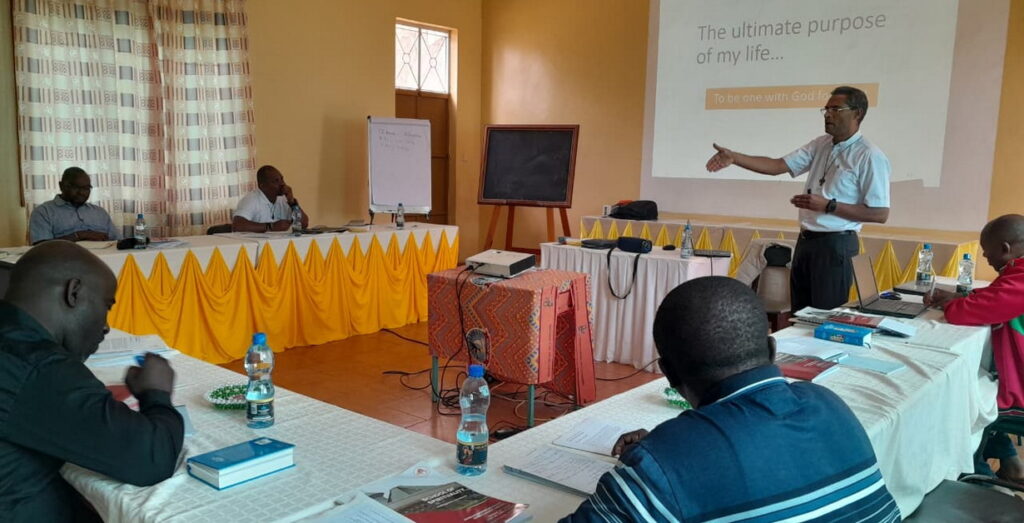
Read also: Sagana: Ongoing Formation Course for Young Missionaries in Africa
Emotional Intelligence (EI)
In the human and relational maturity, we were entertained about emotional intelligence (EI), what is the capacity for self-awareness (understanding our own feelings), social awareness (understanding the feelings of others), self-management (effectively motivating & managing our lives) and social skills (managing relationships effectively). Or how our emotions influence our life and work. Emotional intelligence is a very important personal attribute, said the facilitator Sr. Lucy Thuo of Saint Joseph Sisters of Mombasa.
Fr. Alex Mwake Kiamba working in Kenya participated in the course:
Emotional and social intelligence make the difference between highly effective leaders or people and average ones. It is important for building strong relationships, effective communication, conflict resolution, leadership and teamwork and finally personal growth and well-being.
In summary, it is very helpful to know what EI is and to be able to use it in various circumstances, especially in our lives and work. EI affects all dimensions of our lives including our relationships, spirituality and ministries.
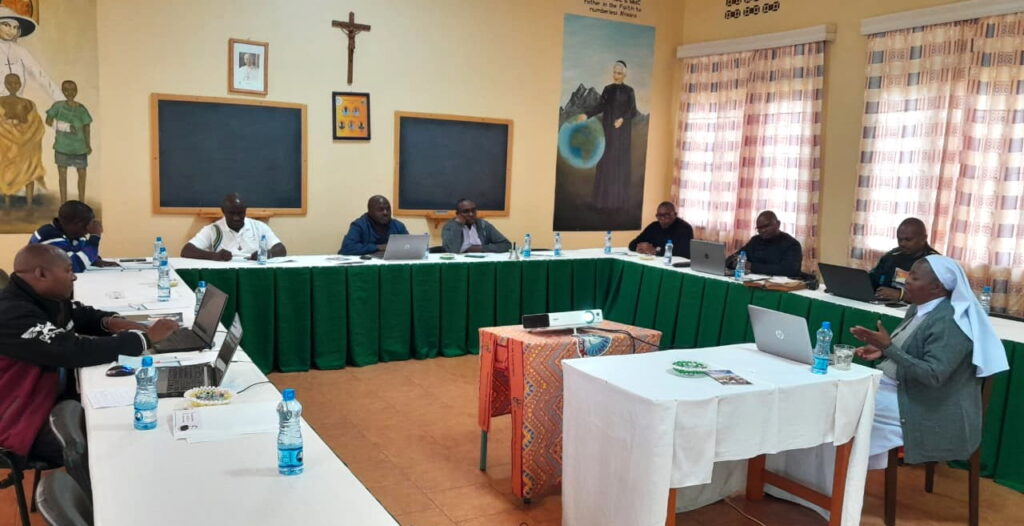
Stress management
“Pumzika! (Rest!) Fatigue kills!” was the first warning of this topic developed by Father Paul, Priest of Muranga Catholic Diocese, on September 11th and 12th. What is stress? The word “stress” was originally used by Selyle in 1956 to describe the pressure experienced by a person in response to life demands. These demands are referred to as stressors. Stress can be positive (eustress) or negative (distress).
Fr. Danstan Balayangaki working in Tanzania participated in the course:
“Eustress” is a kind of stress that can motivate you to meet challenges at work, school, or in your personal life. While “distress,” is the stress that makes you feel overwhelmed. This negative stress can damage your mood and outlook, disrupt your sleep, and trigger health issues such as depression and anxiety. Distress occurs when you feel you’re under more stress than you can handle.
Priests carry out many duties such as spiritual leadership, administering sacraments, administrative duties, teaching and preaching the Gospel, and providing pastoral care to their parish community, including visiting the sick, counseling, and preparing people for marriage. At times they may be required to perform tasks that they have not been adequately trained for. They minister to people in different situations of their lives carrying different emotions, example they may move from a marriage to a funeral. Quite often they work away from their homes, hence a challenge of adjusting to new environments.
Fr. Duwange Wema Meta William working in Ivory Coast participated in the course:
Stress management is vital for priests and missionaries due to high rates of burnout from demanding workloads, lack of social support, isolation, and the constant pressure of managing complex pastoral roles and conflicting expectations from parishioners and family.
How to deal with stress?
These following proposed ways can help us deal with stress: identify early warning signs, identify the source of stress, physical exercises, time management and personal organization, maintain a healthy lifestyle, relaxation techniques, work-life balance, improve your social life, set boundaries, make your work exciting with new knowledge and new methods (Luke 5,4), change your mindset (be positive, optimistic), learning to delegate (Exodus 18, 13-23), leading a life of integrity (being what you are meant to be), avoid unnecessary stress (learn how to say “no”), adapt to the stress, accept things you can’t change, self-care plan, learn to forgive and leading an active spiritual life. Note that your health is the greatest wealth. You need to zealously safeguard it, nobody else will do it for you. You have the greatest responsibility to protect yourself.
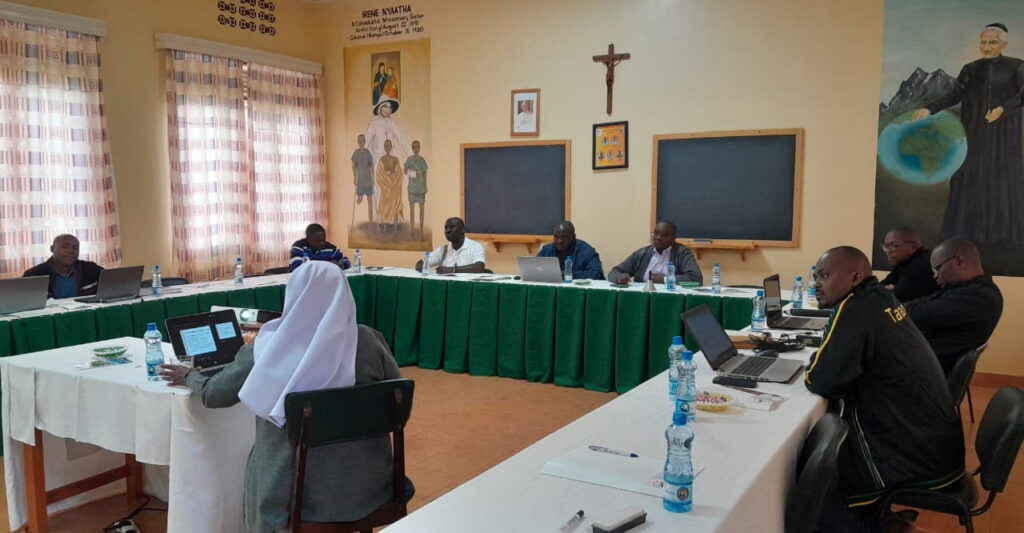
Conflict management outline
This topic was presented by Father Stephen Kinuthia, of the Catholic Diocese of Muranga. Learning conflicts is important because it promotes healthy relationships, unresolved conflicts damage trust and create emotional distance. Conflict management teaches active listening, assertive communication and empathy.
Fr. David Oginga Onyango working in Tanzania participated in the course:
Conflict management is the process of dealing with conflict in a way that is respective, constructive and aimed at reconciliation. It involves various strategies and techniques like negotiation and creative thinking to reach mutually beneficial solutions.
The common sources of conflict are diverse such as personality differences, leadership and authority issues, cultural and generational differences, resource allocation (finances, parish resources and project priorities), theological and pastoral approaches, unmet expectations and role confusion, Lifestyle and habits, competition and jealousy, poor communication (gossips, rumors, misinterpretations and lack of openness), stress, burnout and personal struggles.
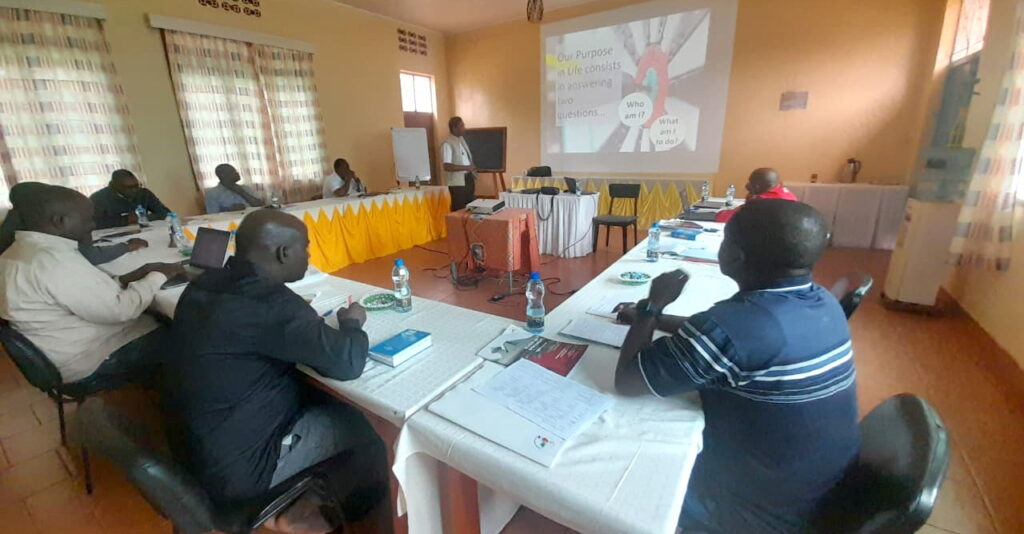
Note that there are intrapersonal conflicts that is within oneself, interpersonal conflicts – between individuals – , institutional conflicts mostly with church structures – manifested through struggles with appointments, transfers, tension between personal conscience and church authority. Frustration with rules, policies or bureaucratic processes -, spiritual conflicts expressed by experiences of doubt, dryness or spiritual darkness, struggles with celibacy, chastity or fidelity to the vows.
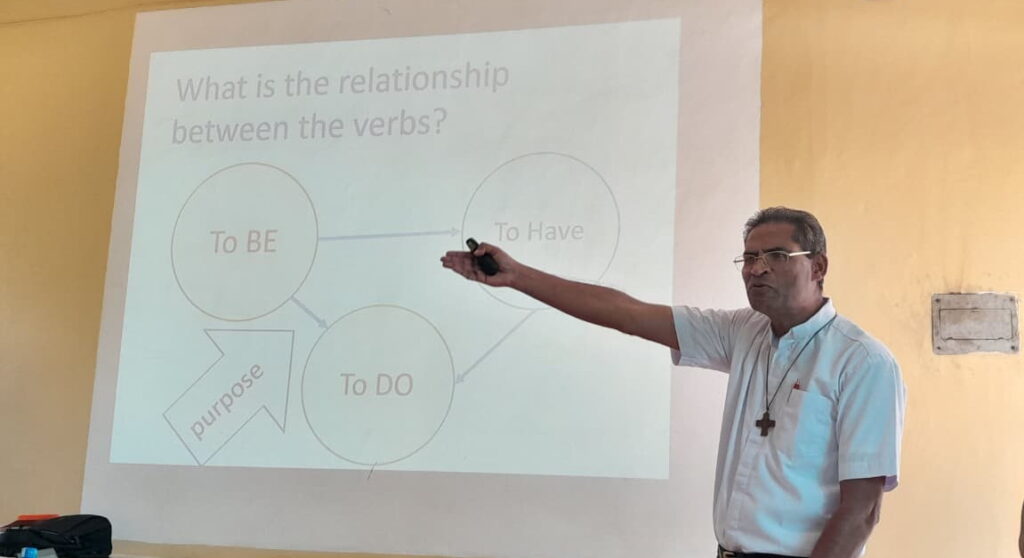
Religious and missionaries live and serve in communities which naturally give rise to differences of opinion, diverse pastoral approaches and contrasting personalities. These differences if well managed will bring growth, mutual understanding and stronger communion in the ministry, if not they will bring tensions, misunderstanding and divisions. Managing conflicts effectively requires open dialogue, shared discernment, time, patience, maturity and prayerful listening for building trust, unity and long-term solutions in our communities.
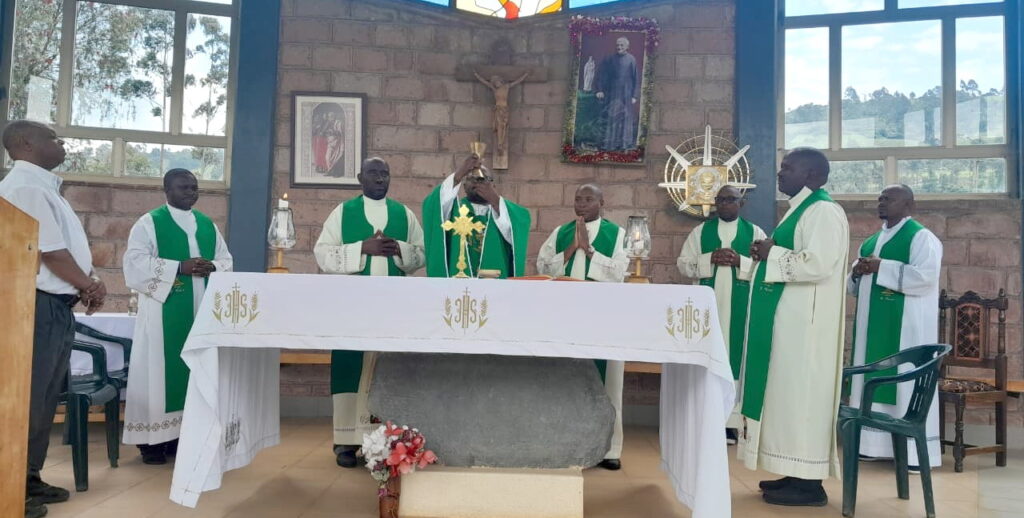
The group of Consolata missionaries participating in the course was composed of Fathers Alex Mwake Kiamba (Kenya-Uganda Region), Raphael Ndirangu Njoroge, John Baptist Odunga Ominde and Duwange Wema Meta William (Ivory Coast Delegation), Mathias Pascal Chipoli, David Oginga Onyango, Jean Tuluba and Danstan Balayangaki Mushobolozi (Tanzania-Madagascar Region).
* Father Jean Tuluba, IMC, missionary in Madagascar.

